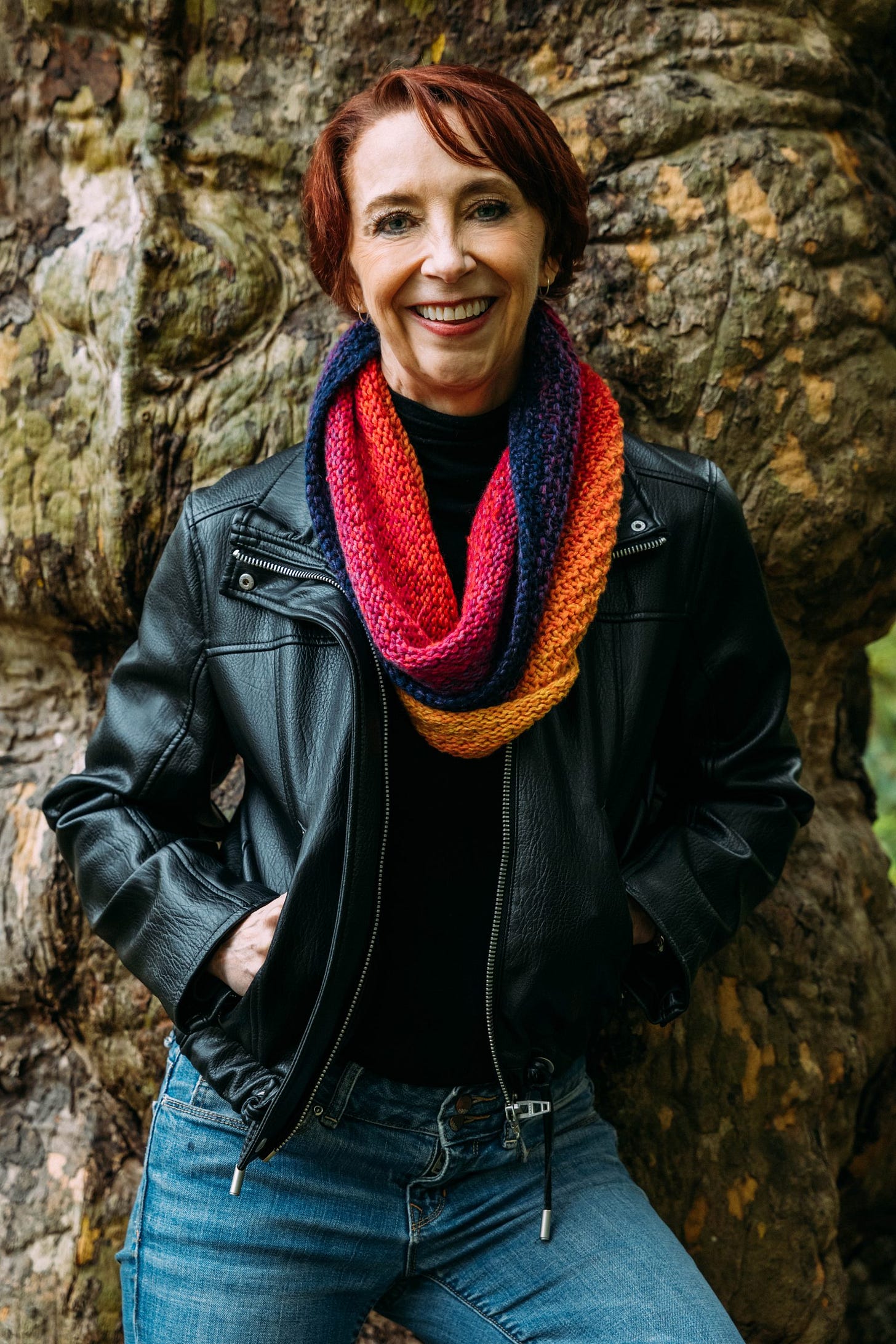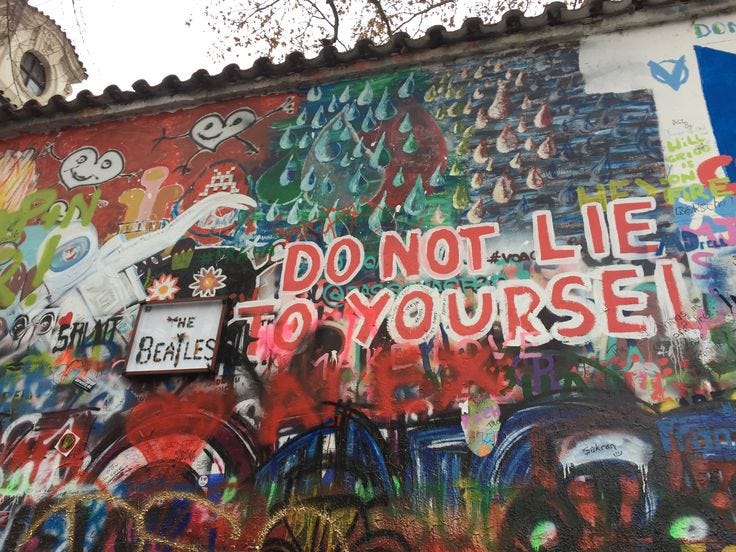To all my beloved readers, I hope this holiday season brings you joy, peace, and time to recharge. Wishing you a safe and happy New Year! Thank you for being part of my journey through 2024—I truly appreciate your presence. May you be enraptured with true love in 2025!
Does anyone else feel a huge sense of relief that 2024 is finally behind us? Is it just me who feels like we’ve been struggling to stay afloat in an endless sea of lies and deception?
Despite the rhetoric we hear, the truth looms: an economy weighed down by unsustainable debt, crony capitalism thriving in the shadows causing massive wealth and power inequality, the military-industrial complex feeding on proxy wars in Ukraine and Syria, public healthcare companies under attack from vigilantes, and lobbies buying power while a cold civil war simmers beneath the surface.
How do we move forward in 2025?
OK, be honest: Did your first thought focus on how others need to change? Did you immediately think about people in red states? Blue states? Perhaps someone more specific like a President elect? Or your partner? Maybe an ex? An estranged friend?
Moving forward starts with being brutally honest with ourselves. Are you living truthfully? Do you embody the ideals and standards you claim to uphold? Are you living authentically and with integrity?
Everyone thinks of changing the world, but no one thinks of changing himself. ~Leo Tolstoy
Truth
Last week, I watched an inspiring interview between Andrew Huberman and Dr. Martha Beck—Harvard-trained sociologist, NYT bestselling author of The Way of Integrity, and Oprah’s life coach. I was captivated as she spoke about the sexual abuse she endured growing up and deeply moved when she revealed her commitment to living a life without lies. Her voice, trembling with emotion, and the pain in her eyes spoke volumes about the hardships she’s faced.
Born into the religious confines of Mormonism, Martha’s life has been one of untangling and reprogramming. From enduring childhood sexual abuse to navigating marriage and divorce with three children, to now embracing a polyamorous relationship with multiple women, her path has been anything but conventional. Through Ivy League halls and into the wilderness of self-discovery, she continues to move closer to living authentically. Her journey mirrors so many I’ve come across recently: brilliant, accomplished women who follow the path laid out by society, striving to have it all, only to wake up to a deep rift between their body and mind—a fracture that ultimately leads to a breaking point.
Her simple lifelong lesson: Stop Lying, To Yourself.
Integrity
The word integrity (from integer) means “wholeness.”
I often write about authenticity, and while it closely overlaps with integrity, the two are not the same. Integrity builds on authenticity, adding the dimension of acting in alignment with a set of principles or maintaining moral consistency.
Living in integrity means expressing and doing what’s true for you in all situations. Depart from your truth in any way—offer a fake smile, flatter your awful boss, marry for money—and you become two people: the truth knower and the lie actor. That’s duplicity. And duplicity, not social noncompliance, is the real enemy of joy. How to Live Your Truth
Dr. Beck reminds us of a paradox: to find genuine happiness, you must first endure and move through suffering.
Several times, I’ve broken the rules of my culture to follow my sense of truth — ended my marriage, left my church, chosen to be vocal in my dissent. Each time, I’ve lost relationships and money, experienced social shaming, even suffered threats to my life and liberty. I won’t lie: It hurt. A lot. Yet, paradoxically, each choice also increased a flow of happiness that seemed to arise for no reason except that I’d stopped blocking it. I was amazed to feel peace trickling through sorrow and disappointment, gradually dyeing everything some shade of happy.
When people experience this — despite outward losses — they begin blooming like flowers, from misery to surrender to thoughtfulness to inner peace. How to Live Your Truth
The Mind Body Connection
The body truth goes ahead of the mind lie.
Many of us know the famous book title The Body Keeps the Score, but there’s a simplicity to Dr. Martha’s statement that resonates with me just as deeply: “The body lives in reality.”
How Lying Affects The Body
It should come as no surprise that being dishonest has deleterious affects on our bodies. Research shows that lying doesn’t just impact your mental health—it also takes a serious toll on your body.
Generally, telling lies is associated with heightened arousal, resulting in increased skin conductance and slower skin conductance recovery, increased blood pressure, heart rate acceleration, respiration rate, and pupil dilation. Chronically elevated heart rate and blood pressure can lead to higher CReactive Protein, thyroid disorder, diabetes and other indices of metabolic syndrome.
In It’s On Me, existential psychotherapist Dr. Sara Kuburic, known as the Millennial Therapist, reveals how the facade of a seemingly perfect life brought her body to its breaking point. The tipping moment came mid-flight when a sudden panic attack rendered her speechless and unable to move her arms—a blackout she doesn’t remember. She later reflected, “I was going home to the life I didn’t want, and my body was like, ‘you need to do something about it.” That harrowing experience became the catalyst for her profound journey toward self-discovery and creating a life of authenticity.
When I first began my trading career and managing client money, I endured years of mental health struggles fueled by stress and anxiety. I couldn’t see—or more truthfully didn’t want to see—how deeply the relentless stress was affecting my body. Or perhaps it was more accurate to say that my mind refused to accept the idea that I wasn’t mentally tough enough to handle the constant ebb and flow of money vanishing or multiplying in seconds.
Then came my breaking point, a dark night of the soul where I was convinced I was about to die of a heart attack. The next morning, I went straight to Urgent Care, rattling off my symptoms to the doctor. The list painted a clear picture of heart trouble—or so I thought. Calmly, the physician explained that I was most likely suffering from panic attacks and, beyond that, likely depression. She suggested I see a therapist, but, of course, I ignored the advice. I ended up seeing two more doctors before one finally handed me a prescription for Xanax. I lived with this unhealthy lifestyle for over a decade, until my body could no longer endure the strain of the false life I had built as a trader.
Mind v. Body
I often hear people reflect in hindsight, saying things like, “My intuition knew all along, yet I went ahead anyway—so feelings must be the ultimate truth.” But then, in a different situation, they’ll contradict this by claiming they “knew in their rational mind” that something was bad for them. So which is it? Is the body or the mind the ultimate arbiter for truth?
Truth feels like freedom
During the interview, Dr. Martha Beck was asked how can you decide which to listen to: the body or the mind? In the blog post Body Truth, Mind Lie: How to Make the Right Decision, she offers the following practical guidance:
Think of a time you said yes to something you later regretted. Vividly remember the moment you made the decision. What were you feeling, physically? Did your gut churn? Did your hands feel cold? Did your feet get hot? Even small sensations are significant. Describe them.
Next, think of a time you said no to something and later wished you’d said yes. What physical feelings did you have while you were making that choice?
Now recall a time you said no and were later relieved that you’d passed on what would have been a bad experience. What were you feeling physically when you made that choice?
Finally, remember a time you said yes to something that turned out to be a great choice. How did you feel, physically, when you were making that choice?
Generally, the sensations of an unwise decision will be consistent, whether your choice was yes or no. A wise yes or no will also have a consistent “body truth.” Focus on these sensations until you can tell them apart.
Love
In every healthy relationship, love begins with truth—the soil from which trust grows. Without trust, there is no safety, no sanctuary for vulnerability to bloom. If we all long to be seen, heard, and valued, then relationships devoid of vulnerability and consistent intimacy will always feel hollow and unfulfilling.
Without the nutrient rich soil of trust, lies are the only things that flourish, and like relentless weeds, they suffocate the flowers and lay ruin to the garden.
In 2025, let us till the soil of our gardens with truth, beginning within ourselves. Only then can we nurture a space where true love blooms.
Conquer anger with love, evil with good, meanness with generosity, and lies with truth. ~Buddha









